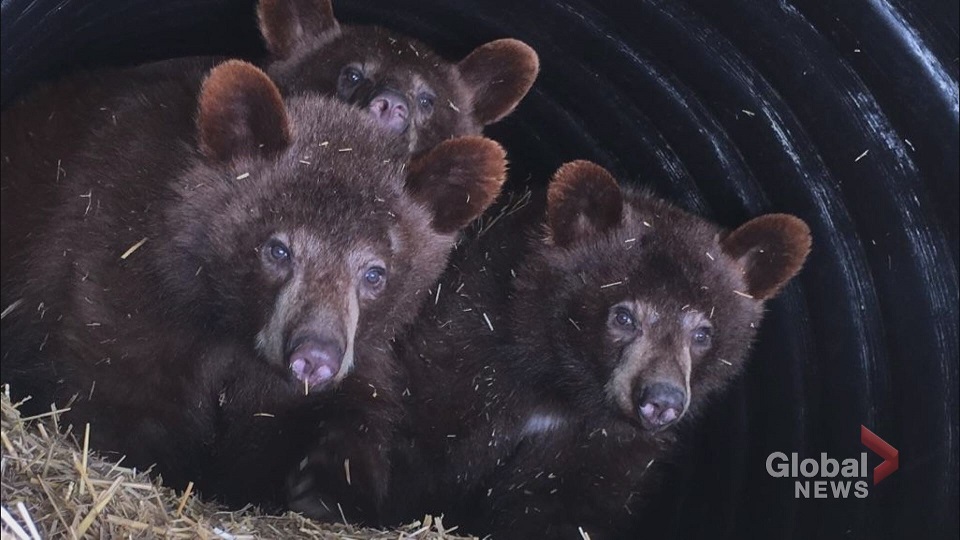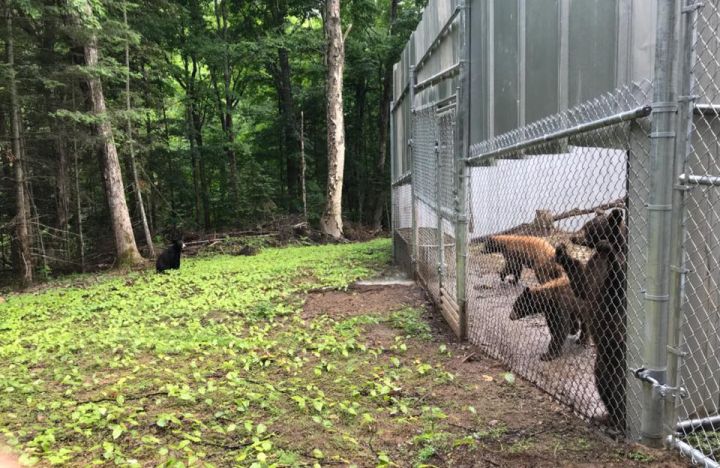Two of the three black bear cubs found in a bathroom in Banff National Park last year have hunkered down for the winter after a bumpy ride that saw them travel to Ontario and back before being released into the wild.

Three cubs were found by a visitor in a public bathroom in Vermillion Lakes in April 2017. Once rescued, they were sent to Aspen Valley Wildlife Sanctuary in Ontario where they spent the 2017-18 winter before being brought back to Alberta for release.
The bears were fitted with GPS collars and released into the backcountry in an area with high-quality food and little contact with humans, Banff field unit wildlife ecologist Jesse Whittington said. The collars allowed officials to monitor the bears without having to go near them.
One of the bears was killed by a grizzly in late August, but the other two females survived through the summer and fall and have denned for the winter — one on Oct. 15 and one on Nov. 5, which Whittington said is typical timing for black bears.
Whittington said the fact the bears are in for the winter shows they’re picking up on their natural instincts living in the wild, adding black bear yearlings have a high mortality rate of about 30 per cent or more.
“We’re pleased to see that these two young females survived through the summer and it was interesting to watch the movements through the fall,” he said.
“Their home ranges were adjacent to each other and overlapped, so they were certainly aware of each other but it did not look like they travelled much at all together.”
WATCH: Bear cubs found in bathroom in Banff explore their enclosure at Ontario rehab facility

He said the bears denned about 10 kilometres apart in a higher sub-alpine area, which keeps them safer from disturbances from humans and predators such as wolves.
Through the summer and fall, Whittington said the bears anchored and stayed close to the area they were placed in when they were reintroduced to the park, meaning officials weren’t worried about them venturing close to humans. He added he believes they’ll stay in that home range when they wake in the spring.
Following the bears’ lives in their new habitat is all an experiment for Whittington and his team, as rehabilitation and release of orphaned bears in Alberta was previously banned. The government lifted that ban in April.
“We have not released orphaned black bears in Banff National Park before so we are really interested in seeing how it will work,” he said.
“It can help us understand better how translocations and reintroductions could work in a national park, although it’s a small sample size and it’s hard to make inference about whether or not reintroducing orphaned bears is a successful endeavour or not.”
The batteries in the GPS collars the bears were fitted with will likely only provide data for a year and Parks Canada has no plans of recapturing the bears to put more on, however, both have an ear tag which will allow officials to monitor their movements and behaviour if they’re spotted by staff, park visitors or wildlife cameras.
“We hope that these bears just become part of our natural black bear population,” Whittington said.
He said the bears are too young to start breeding at this age, adding they’ll likely be about four to six years of age when they start looking for a mate.




Comments